




When the song of the angels is stilled, When the star in the sky is gone, When the kings and princes are home, When the shepherds are back with their flock.
The work of Christmas begins:
To find the lost, To heal the broken, To feed the hungry, To release the prisoner, To rebuild the nations, To bring peace among people, To make music in the heart.
– Howard ThurmanThe Salvation Army is about giving hope where it’s needed most.
What is The Salvation Army?
The Salvation Army, an international movement, is an evangelical part of the universal Christian Church.
Vision Statement
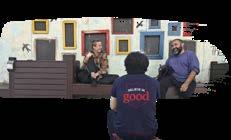
Wherever there is hardship or injustice, Salvos will live, love and fight alongside others to transform Australia one life at a time with the love of Jesus.
Mission Statement
The Salvation Army is a Christian movement dedicated to sharing the love of Jesus by:
• Caring for people
• Creating faith pathways
• Building healthy communities
• Working for justice
The Salvation Army Australia acknowledges the Traditional Owners of the land on which we meet and work and pay our respect to Elders, past, present, and future. We value and include people of all cultures, languages, abilities, sexual orientations, gender identities, gender expressions, and intersex status. We are committed to providing programs that are fully inclusive. We are committed to the safety and well-being of people of all ages, particularly children.
Founders William and Catherine Booth
Salvation Army World Leaders
General Lyndon and Commissioner Bronwyn Buckingham
Territorial Leader Commissioner Miriam Gluyas
Secretary for Communications and Editor-In-Chief
Colonel Rodney Walters
Publications Manager Cheryl Tinker
Editor Simone Worthing
Graphic Designer Ryan Harrison
Enquiry email publications@salvationarmy.org.au
All other Salvation Army enquiries 13 72 58
Press date 24 January 2024
Printed and published for The Salvation Army by Commissioner Miriam Gluyas at Focus Print Group, South Granville, NSW, Darug Nation lands.
salvosonline.org.au


We don’t have to look far to see injustice. The issues can motivate us to make a difference, but they can also overwhelm us and leave us feeling that we are helpless to change anything much at all.
As the United Nations World Day of Social Justice approaches on 20 February, the Salvos Social Justice Stocktake continues with a new consultation period launching this year’s report.
Similar to the 2022 publication, this report will be a map of social justice priorities across Australia. It will also reflect the desire of many Australians to help make a tangible difference in their communities.
The report will emphasise that we can all do something – as individuals, communities, states or territories, and as a nation – to help combat a range of issues including mental health, family violence, housing affordability, homelessness and loneliness.
In this edition, there is also a quiz you can take to discover your social justice profile, and a new column, ‘Five minutes of social justice’ to give you some ideas on making social change a reality!
Simone Worthing EditorThe Salvation Army ran a nationwide Social Justice Stocktake in late 2021 to learn more about the challenges people were seeing in their local communities. The result was a map of social justice priorities across the country, a resource to inform advocates and decision-makers about the issues at hand.
The Social Justice Stocktake continues with a new consultation period launching this year.
“The Social Justice Stocktake started as an advocacy tool,” explains Jennifer Kirkaldy, General Manager of Policy and Advocacy for The Salvation Army Australia. “I scribbled this idea on the whiteboard and asked, ‘Is this inspired or am I an idiot?’ I sent it to the team and we determined that to do it effectively we had to have critical mass, with 100 people from every federal electorate.”
The project gathered over 15,000 responses and captured the experiences of at least 100 individuals in every federal electorate. The stocktake created profiles of the areas, and the issues people were most concerned about.
“We asked two questions: What are the social justice issues in your area? What would you like done about it?” Jennifer says. “When we got the results about the second question, there was just an overwhelming sense of hopelessness; ‘I don’t know. It’s too big to do anything. There’s nothing I can do.’”
The five issues that Australians identified were mental health, housing affordability, alcohol and drug misuse, family violence, and homelessness. Some felt they needed government to act before they could do anything. The Social Justice Stocktake also answers that question of ‘What can we do?’, offering responses for the nation, for states or territories, for communities, and for individuals.


The Social Justice Stocktake . . . answers that question of ‘What can we do?’
“We wanted to break the challenges down into actions,” Jennifer explains. “The issues are big, but it’s not impossible. It’s not hopeless. We came up with actions that a person could take right now, and take to their sporting club or wherever, to write to their local member.“
The Salvation Army’s Social Justice Stocktake has become a crucial part of advocacy, used in conjunction with media, with supporters, and helping to drive community engagement and development with the Salvos across the country. The effect of the stocktake has been to change people’s perspectives of injustice.




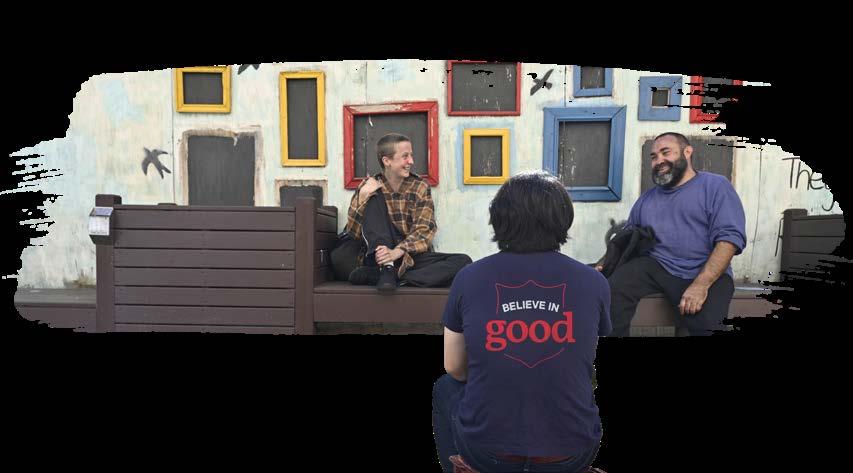
“It’s like one of those optical illusions, where you first see it and the image seems upside down,” Jennifer explains. “When you take a moment though, look at it deeply, you can see the picture differently and suddenly it appears the right way up. The picture hasn’t changed, but the way you look at it changes.”
The Salvation Army’s vision is that ‘Wherever there is hardship or injustice, Salvos will live, love and fight, alongside others, to transform Australia one life at a time with the love of Jesus.’ The idea of transformation, of changing perspectives, is at the heart of the Salvos’ work.
“If you think about The Salvation Army’s vision, the question becomes ‘Transform Australia into what?’ and ‘How do we do it?’,” explains Jennifer. “We need to answer these question. We do have a vision for what we can transform Australia into, and a pathway to get there where we can all contribute.”
What first started as a moment of inspiration has become a map to help see the injustice in our communities, and to see the actions we can take as well. The Social Justice Stocktake is an important resource for changing our perspectives and changing society, relaunching again in 2024 and inviting everyone to participate.
“When the survey comes out, fill it out,” Jennifer explains. “Speak with everyone about it, with family, with community and local members. Talk to people about the issues they care about. And if you have ideas about what we can do practically, then I’d love to hear them. We always want to hear from people taking action.”
Scan here to take the Social Justice Stocktake survey.
Complete the quiz and discover your social justice style
1. When you encounter a homeless person at the local park, what is your first instinct?
Smile and say hello to help them feel safe, welcome and seen.
Write to your local MP about the desperate shortage of housing in your community.
Provide them with necessary essentials such as toiletries, purchased or from home.
Donate money to a local organisation like the Salvos who can help them in a coordinated way.
2. Your favourite way to raise awareness for social justice causes is:
Engaging with your friends and community to share knowledge and learn together.
using your social media platforms to share information and spark discussions.
Organising and participating in direct community action events or protests. Hosting fundraisers and supporting organisations financially.
3. Which of these social justice events sounds like the most fun?
A community gathering focused on kindness and inclusivity.
A panel discussion featuring influential speakers who advocate for change.
A protest or march to raise awareness about a specific issue.
A charity gala or fundraiser where funds go towards supporting a social cause.
4. What action do you feel is the most meaningful way to address modern slavery?
Volunteering with groups that actively support victim-survivors of modern slavery.
Sharing information publicly about Australian companies and their compliance with modern slavery laws. Joining a march or campaign that protests modern slavery in the world.
Deliberately choosing products (like chocolate) from companies that work to prevent modern slavery.
5. How do you feel about getting involved in local community projects?
I love hands-on activities that directly contribute to positive change. I think advocating for systemic changes to address root causes is a more effective way to help.
I believe the most immediate impact comes from activism and protest to make sure leaders see social issues as a priority.
I support the experts financially, through donations and volunteering, to find the best way to help.
6. When you witness an act of discrimination in public, your response is:
Intervening directly and offering support to those affected.
Documenting the incident and sharing it on social media to raise awareness of discrimination in the community.
Organising or joining an anti-discrimination protest.
Contributing financially to organisations combating discrimination.
7. Which of these statements best reflects how you feel you could do the ‘most good’ for social justice causes?
Directly helping the people affected.
Raising awareness and influencing decision-makers to make structural changes.
Agitating for change and making social justice a priority for those in power.
Directly supporting the organisations who are already making a difference in the community.
RESULTS:
THE MODEL
If you got mostly you might be
THE MODEL. you lead by example, taking action in your everyday life to show people that you care.
you play a critical role in showing our community social justice is important and can be achieved within our own circles. What a super star!
THE INFLUENCER
If you got mostly , you might be
THE INFLUENCER. you focus on raising awareness and convincing those with power to take action.
you know that structural change is needed to change things for good and you use your platforms to share information, statistics and personal stories that build the case for change. you give influencers a good name!
THE ACTIVIST
If you got mostly , you might be THE ACTIVIST. you want to take direct action now to make a difference.
To achieve major change, you know we need to build momentum and demonstrate that people really care about social justice. you are carrying on a proud legacy of agitating for change –good on you!
If you got mostly , you might be THE PATRON. you support impactful change by raising funds and support for organisations and causes.
Whether you are donating directly, volunteering, running a fundraiser or getting a table together for a gala or trivia night, you are directly contributing to making a difference in people’s lives. Charities and community groups could not do what they do without you!
If you got a mix of everything, or agreed with more than one answer you might be THE ALL-ROUNDER. you want to make a difference in the way that makes sense in the situation in front of you.
you are versatile and see that a range of different approaches can make the most impact at different times. Whatever the situation, you can make a difference!

Social justice means different things to different people, but it generally includes the idea of a society being fair, equitable and equal.
In Australia, social justice challenges are multi-faceted. These include issues such as poverty, homelessness, Indigenous rights and discrimination based on factors like race, gender, disability and socio-economic status.
Some of the issues in Australia are huge and will take a lot of effort to fix – but all of them can be made better.
Over the next year, we’ll be providing ‘Five-minute social justice’ segments, highlighting how everyone can make a difference on the issues facing Australia today. In this edition of Salvos Magazine, we are looking at social justice as an overarching idea.
To inform The Salvation Army’s advocacy approach, every few years we undertake a Social Justice Stocktake. you can really help us, and the way charities do advocacy, by filling in the Social Justice Stocktake Survey!
Check out the last Social Justice Stocktake – where people told us the top issues of concern they see in their communities include mental health, housing affordability and family violence.
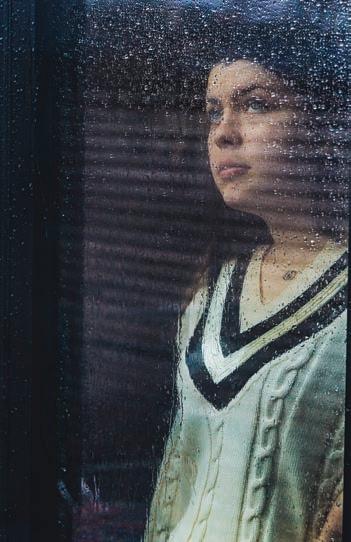
Scan here to take the Social Justice Stocktake survey.

Scan here to read the last Social Justice Stocktake report.
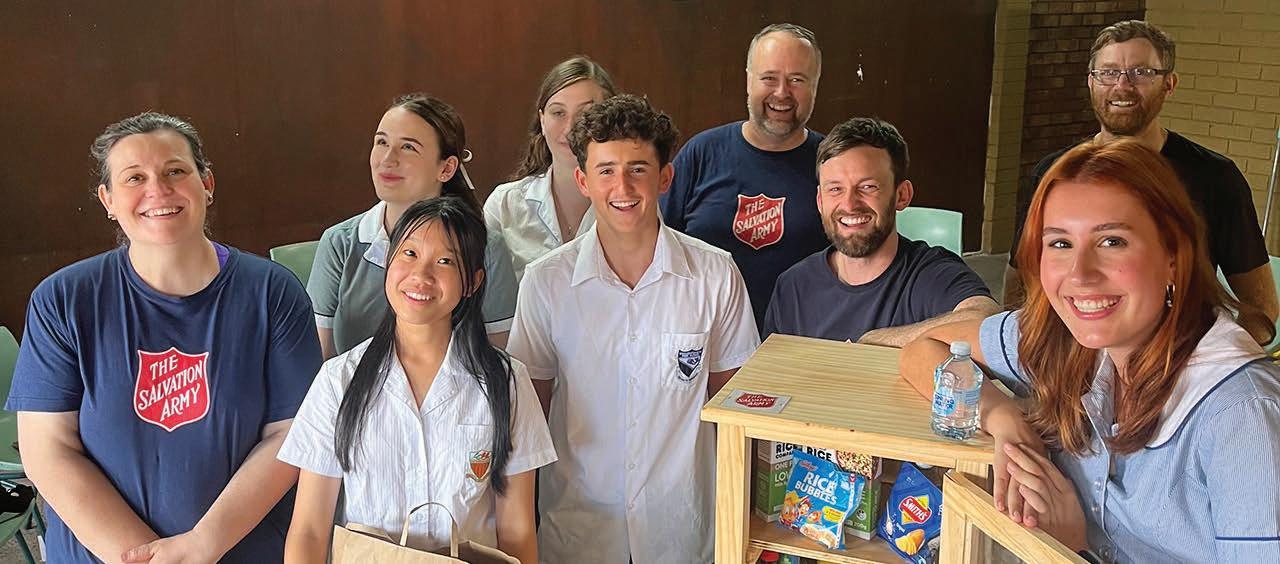
A group of teenagers from Sutherland Shire high schools in Sydney joined forces last year to change their local communities for the better through The Salvation Army’s Hope Internship Program – an initiative designed for students who are passionate about social justice and making a difference in the community.
The 2023 program participants met throughout the year to work on community engagement, fundraising and advocacy projects supported by a network of professionals from the Salvos and the local community.
The program was initiated and run by the ‘Salvos Schools’ team’s Roza Gutschow, who worked with the local Salvos church and services in the Shire Salvos area where the schools were based.
Joel Campbell, Shire Salvos Mission Leader (Menai) said the students had raised awareness at their schools around the work of the Salvos and the various local social issues they were learning about in the Internship Program.
“It’s great to see that the next generation wants to have an impact on the world, and The Salvation Army can partner with them to make their visions become a reality,” said Joel.
The Shire Hope Interns celebrated their achievements and showcased their final project – a food pantry for The Salvation Army’s new mission work at Heathcote –in December last year. The interns have committed to supplying food for the pantry by collecting donations through their school communities.
“Our pantry box was originally created because we, as the Hope Interns, decided that there wasn’t enough available,” said Hannah, one of the interns. “And we wanted to create something for people that not only benefitted people when they needed it but was available for the community to give when they had too much and take when they had too little.”
It’s hoped that a second year of the Hope Internship Program will be offered in high schools throughout the Sutherland Shire in 2024. –
Lauren MartinSomeone asked me why I’m studying social work. The answer is multi-faceted really. In part because I like it. And, as I’ve been saying since I became a Salvation Army officer (pastor), most days a social work degree would have served me better than a theology degree.
In a recent reading, I encountered a phrase that just made something ring inside of me – emancipatory social change. In a nutshell, it’s advocating for change in society that will bring about freedom from oppression, injustice and inequity. Sounds very familiar . . .
Perhaps you’ve heard of Liberation
Theology. This basically refers to a
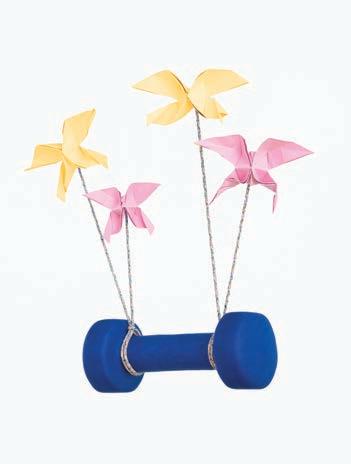
theology applied to the concerns of marginalised communities in need of social, political, or economic equality and justice.
Or perhaps to put it another way, as we read in the Bible:
“When he (Jesus) came to the village of Nazareth, his boyhood home, he went as usual to the synagogue on the Sabbath and stood up to read the Scriptures. The scroll of Isaiah the prophet was handed to him. He unrolled the scroll and found the place where this was written: “The Spirit of the Lord is upon me, for he has anointed me to bring Good News to the poor. He has sent me to proclaim that captives will be released, that the blind will see, that the oppressed will be set free, and that the time of the Lord’s favour has come.” He rolled up the scroll, handed it back to the attendant, and sat down. All eyes in the synagogue looked at him intently. Then he began to speak to them. ‘The Scripture you’ve just heard has been fulfilled this very day!’”
Luke chapter 4, verses 16-21 New Living Translation
Captain Belinda Cassie is a Salvation Army officer (pastor) in Victoria.
Scan here for more stories of hope.
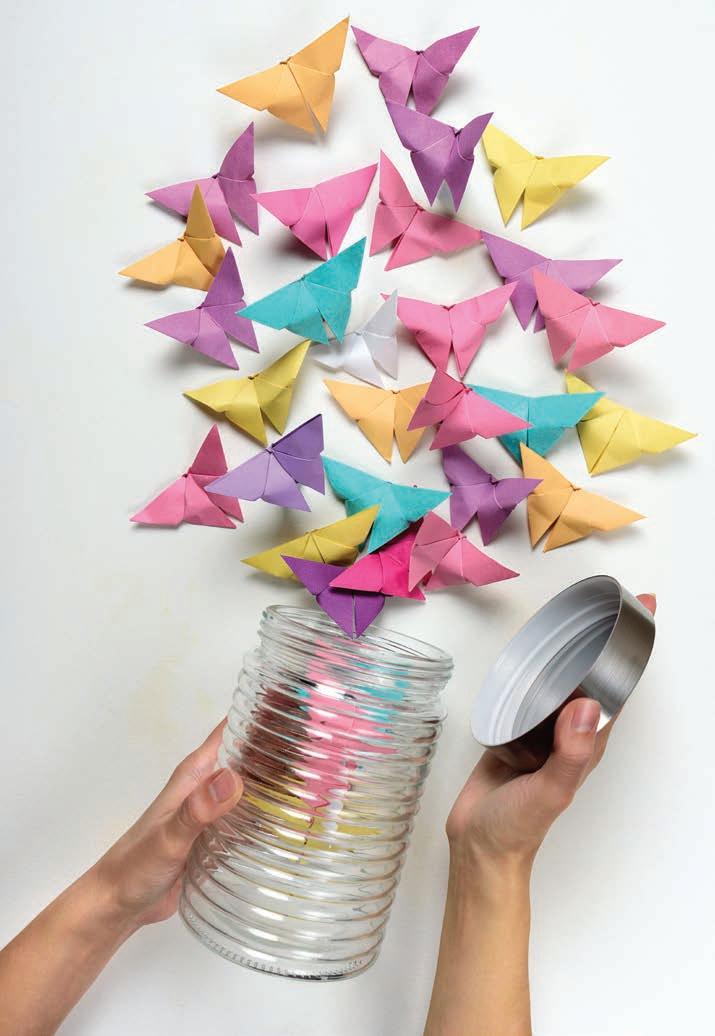
I have gone through periods of time of being pretty angry. There have been times where I’ve just said, this is really unfair. Why on earth was it me? I was born without a femur on my left leg. And what did form, higher up around the hip area, was a real mishmash of instability. No ball and socket, nothing that really stabilises there. My mum and dad were told, “It’s likely she won’t be able to walk” – but I’m a little tenacious. At 14 months of age, they did get me fitted with my first prosthetic leg. That’s meant lots and lots of trips to limb specialists and limb makers over the years, and I’ve had countless new limbs made.
As I was growing, it would have been really difficult for Mum and Dad.
My deformity is very rare, so they had to advocate for me and really search for the very best treatment, the best prosthetic legs. In a way, they were really protective of me, but they did put me into mainstream school, made me go to school, and made me do piano lessons like my sisters. So, there was certainly that wanting me to experience life as it is.
I’ve always considered myself to be fortunate to grow up in the Church and it was a real bed of acceptance. I had beautiful friends and lovely older people who just looked after me or cared for me or loved me. I’ve been a Christian, I guess, since I was a young kid. That was life for us. We were always going to
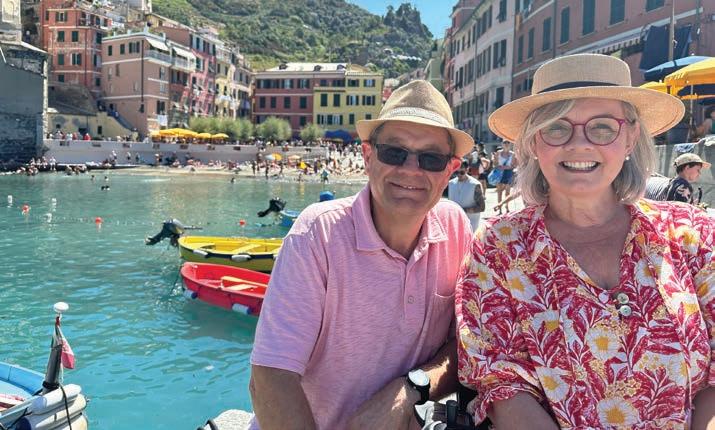
church and were part of Sunday school and all the things that come with that. The church building was really bad. There were steps everywhere! There was nothing easily accessible, but I was just mobile then, I could manage places like that, I didn’t feel excluded.
So, the church was a great space for me growing up. On my hardest days of living with a disability, there are Scripture verses that I hold onto, and that I must hold onto, to help me get through my life. It’s not always easy. So, I’ve really taken hold of some Scripture verses that are very special to me. Psalm 139 verses 14 to 16: “For you created my inmost being, you knit me together in my mother’s womb.” It goes on to say, “I praise you because I am fearfully and wonderfully made . . . I know that full well.” God doesn’t make mistakes. So that’s what I hold onto.
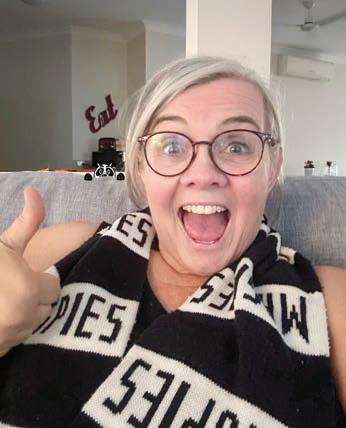
People with disabilities have beautiful gifts to offer.
I think people with disabilities have beautiful gifts to offer. I think with my own back story, I mean with a disability, more so these last few years, I can’t be busy. I can’t sustain the busyness of the Salvo world. In March 2021, I retired after 26 years of being a Salvation Army officer (pastor). Wondering what I would do next, I found myself contacting a number of funeral homes, offering to conduct services. This seemed to be an easy transition as I’d had similar experiences as an officer; however, in doing so, I’ve found my place!
I can be ‘salt and light’ (Matthew chapter 5, verses 13-14) wherever I am and in whatever work I do. I absolutely love my role as a funeral celebrant. I can sit with people, journey with people, care for people, pastor people during their saddest moments. What an honour!
But as I’ve grown over the years, over and again, I’ve gone back to that Bible verse, and it’s a realisation that I’m not a mistake and I was made for a purpose, or made on purpose for a purpose; that I’m beautifully made regardless of what happened. That’s my promise. That’s what I hold onto deeply.
Sue Davies is a retired Salvation Army officer who works as a funeral celebrant in Queensland.
Scan here for more information on Salvation Army services.

4 slices of bread, butter, 4 eggs, 3 tblsp caster sugar, ½ tsp vanilla essence, 2½ cups milk, ¼ cup sultanas, 3 tblsp brown sugar, ¼ tsp nutmeg, ice cream
Method
• Preheat oven to 180°C. Grease 1.25-litre casserole dish.
• Spread bread with butter and cut into 2cm squares.
• Beat together eggs, caster sugar, vanilla essence and milk.
• Layer bread and sultanas in dish.
• Pour egg mixture over bread and sprinkle with brown sugar and nutmeg.
• Bake for 30 minutes until golden.
• Serve with ice cream.
Why are writers always cold? Because they are surrounded by drafts.
I got my friend to read Jane Austen. She just needed a little Persuasion.
Why did the dog run after the book? He was chasing his tale.
My thesaurus was stolen. I’m at a complete loss for words.

Fill in the grid so that every row, every column and every 3x3 box contains the digits 1 to 9.
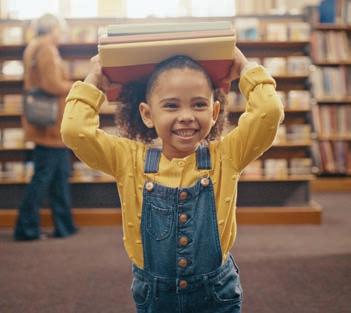
1. What day is celebrated by book lovers on 14 February?
2. When choosing a book to read, what is the most important factor for most Australian readers?
3. In the period 2021-2022, how many public library service points were available nationwide?*
On which page of this week’s Salvos Magazine is Tum-Tum hiding?

“Learn to do right; seek justice.”
Isaiah
chapter 1, verse 17a New International Version
4. How many people accessed these services both in person and online?*
5. How many items were available through these service points?*
Bibliosmia means loving the smell of old books.
The covers of the first printed books were considered artworks. They were covered in drawings, leather and even gold – so there was no place for the author’s name.
The Bible is the most read book in the world.
The longest sentence ever printed is 823 words. The sentence is found in Victor Hugo’s Les Miserables.
